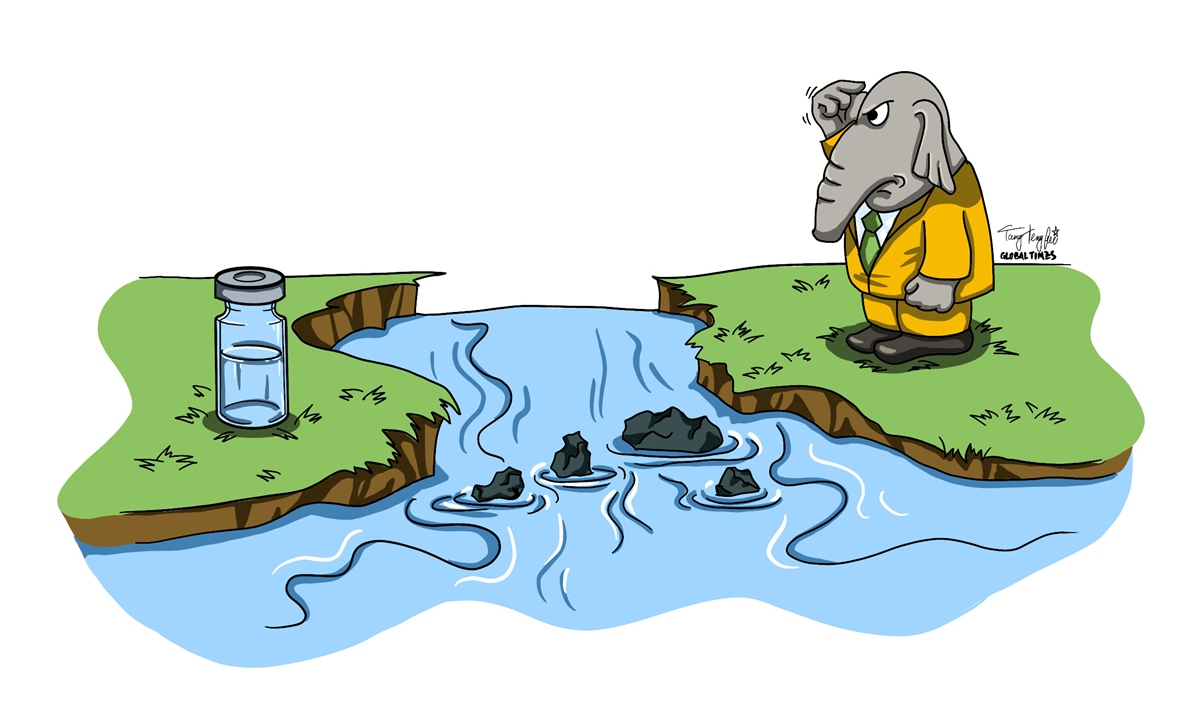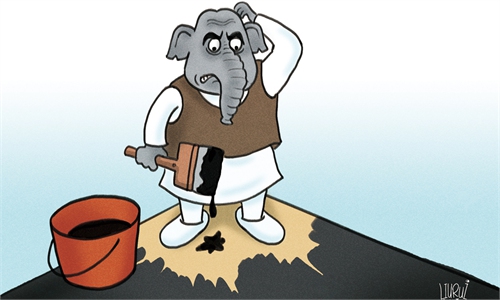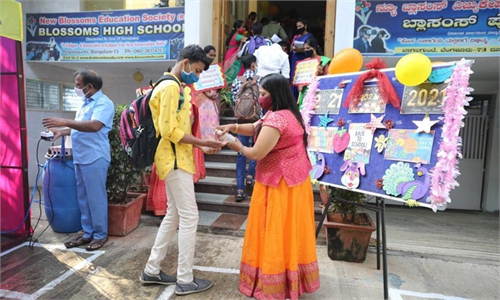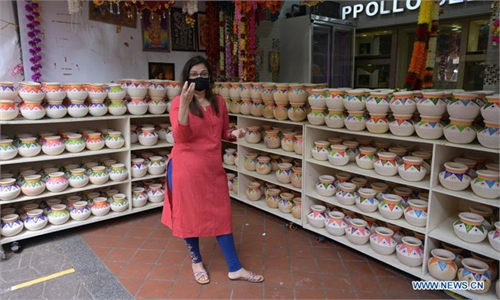COMMENTS / EXPERT ASSESSMENT
Rocky road ahead for New Delhi’s vaccine export campaign

Illustration: Tang Tengfei/GT
After a year of novel coronavirus onslaught, the world has entered 2021 with quite a few vaccines available. India, with confirmed COVID-19 cases exceeding 10 million now, is seen rushing into approving two vaccines for emergency usage, including one home-grown candidate which has yet to complete the phase III trials.India is expected to export domestically produced coronavirus vaccine within a fortnight of their launch, the BBC reported. Countries including Bangladesh, Saudi Arabia and Morocco are among the list of buyers.
As many countries and regions have seen infection resurgence recently, it is good news if India could massively produce and export safe and effective COVID19 vaccines. The South Asian country has been manufacturing vaccines and other pharmaceuticals for Western countries and has developed a relatively high production capacity.
Yet it is not a straightforward pathway for the delivery of Indian made vaccines. For the two approved vaccines in India, one named Covishield, is developed by AstraZeneca with Oxford University, and the other one Covaxin is developed by local firm Bharat Biotech.
With a reported efficacy rate of 70.42 percent, the Covishield became the first vaccine approved by Indian medical authorities, while the country is the manufacturer which may not be in the position to decide the shipment of the products.
And the locally developed Covaxin, which has been placed with high expectations, was given green light without completion of the phase III trials and a specific efficacy rate, raising concerns about its negative side-effects.
In responding to the concerns, some Indian officials and experts aggressively defended that the vaccine was "200 percent safe" or people raising doubts are "mentally challenged," according to media reports. In fact, there's no guarantee that a vaccine is totally safe or effective, and playing up nationalism to boost a local vaccine is meaningless and may be dangerous.
Along with the research and development of the vaccines, there has been some finger-pointing and geopolitical intrigue. Recently India reportedly plans to shore up economic cooperation with Sri Lanka, including boosting investments and supplying vaccines to the country, has been interpreted by some foreign media outlets as a way to counter China.
Though India has taken this zero-sum mentality toward China for a period of time in the past year and tried to confront China from border disputes to economic frictions, it is the last thing needed when the global community is fighting against the once-in-a-century health crisis that have claimed millions of lives and put even more people back into poverty or starvation.
Not to mention that India itself is still struggling in the virus and economic quagmire.
With the virus under control in home, China has been ramping up efforts to work with other countries and regions to contain its spread, including donating medical supplies, sending medical teams, and pledging to offer its vaccines as global public good so as to improve accessibility and affordability for the international community, especially the developing countries.
At the critical time when the world needs to join hands and fight the pandemic together, it is expected that New Delhi could take note that vaccines should not be a geopolitical tool and vaccine exports is not a contest.
The article was compiled based on an interview with Liu Zongyi, secretary-general of the Research Center for China-South Asia Cooperation at the Shanghai Institutes for International Studies. bizopinion@globaltimes.com.cn



